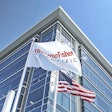
The University of Texas MD Anderson Cancer Center has acquired inducible switch technologies for development in cell therapy programs from Bellicum Pharmaceuticals.
According to a filing with the U.S. Securities and Exchange Commission (SEC), Bellicum Pharmaceuticals, which is being dissolved, has sold substantially all of its assets to MD Anderson for an amount equal to $8.1 million in cash.
MD Anderson has purchased assets related to the CaspaCIDe switch platform and the GoCAR platform, and clinical-grade stocks of rimiducid, an agent used to activate the safety switch. Safety switches are designed to abrogate high-grade adverse events associated with genetically-modified cell therapies.
The current acquisition includes previous licenses held by MD Anderson and eliminates certain downstream financial obligations required under those licenses. The asset acquisition also includes the transfer of certain intellectual property related to Bellicum’s GoCAR-T and GoCAR-NK technologies.
In a statement, MD Anderson said it planned to use the CaspaCIDe technology as a safety feature of cell therapies in development and make the technology “widely available” via nonexclusive licenses to other academic institutions and to biopharmaceutical companies.
The safety switch incorporates an inducible enzyme known as caspase-9, which initiates the first step of the apoptosis programmed cell death pathway. Including this safety switch could offer clinicians the ability to quickly limit potential treatment-related toxicities that may occur, the organization said.
MD Anderson said that patient safety remained a “top priority” when designing novel cell therapies which held great promise as effective immunotherapies.
Potential applications include cell therapies where cytokine release syndrome and neurotoxicities have been observed, cell therapies targeting novel antigens with on-target/off-tumor safety concerns, and next-generation cell therapy constructs with higher potency.
“CaspaCIDe provides a critical safety mechanism which could be triggered as required to reduce side effects, and we look forward to its continued development at MD Anderson,” said Philip Jones, PhD, the company’s vice president of research strategy, transformation, and operations.
The switch can be triggered by rimiducid, leading to rapid elimination of cells containing the CaspaCIDe switch.
MD Anderson’s Therapeutics Discovery division plans to continue the clinical development of rimiducid in order to seek future approval from the U.S. Food and Drug Administration (FDA).
Dr. Katy Rezvani, PhD, professor of stem cell transplantation and cellular therapy, said, “We have incorporated CaspaCIDe into many of our own cell therapies under investigation, and we are excited about the prospect of broadening the potential applications of this technology in the future.”
Under a previous licensing agreement, MD Anderson has incorporated CaspaCIDe into multiple cellular therapy programs, including certain chimeric antigen receptor (CAR) natural killer (NK) cell therapies and plans for certain CAR T-cell therapies.












